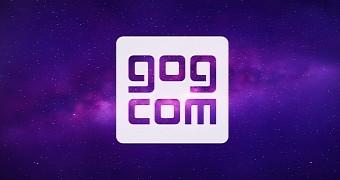The developers working on the GOG digital distribution service are announcing that they are adding two-step login for all user accounts as an optional new layer of protection for those who want to make sure that their personal info is secure.
At the same time, the company is aiming to encrypt all communication between users and the site using HTTPS starting the coming weeks to make sure that the chances that someone will get access to personal data are even lower.
Two-step login means that players will be asked at certain points during their activity on the site to use a four-digit code sent in an e-mail to confirm their identity. The concept is options, although the team recommends it for all users.
The official announcement adds, "By doing this, we make sure that there's no way to gain unauthorized access to your GOG.com account without both your GOG password and your email account. When used to its full potential with unique passwords for every account, two-step login can be virtually impenetrable."
Gamers also get the option to use just one click to close all active GOG sessions, a feature designed for those who use shared computers or simply want to be sure that they do not remain logged in.
HTTPS will be used for all service features
Everything from store to chat, downloads and the forum will be encrypted to make sure that the security of all users is as high as possible and that no outside groups can get access to personal details or credit card data.
GOG has not been hit by any major security breach recently, but the company seems interested in making sure that no incidents happen in the future that can diminish trust between gamers and the company.
Valve has also announced a number of security enhancements to its Steam service, mainly designed to make sure that gamers do not take advantage of the trading and item sharing system in nefarious ways.
The PC gaming services have managed to remain mostly secure during the past few years while the PlayStation Network and the Xbox Live infrastructure from Sony and Microsoft have been repeatedly brought down by DDoS attacks.
The two companies and Nintendo have joined forces to try and limit the impact of such activity, but the results of their initiative are at the moment limited.

 14 DAY TRIAL //
14 DAY TRIAL //